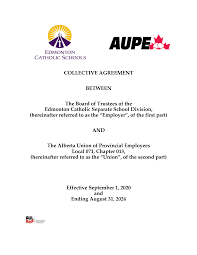AUPE Collective Agreement Negotiations Reach Critical Stage Across Alberta’s Public Sector

Current State of AUPE Negotiations
Nearly 100,000 AUPE members are currently involved in bargaining negotiations, with a significant gap between worker expectations and employer offerings.
The negotiations with the Government of Alberta (GOA) have reached a crucial point, with AUPE President Guy Smith acknowledging the challenging nature of these talks. The process began 18 months ago at a bargaining conference in Edmonton.
Member Engagement and Preparation
The Government Services Bargaining Committee has undertaken extensive preparation, including unprecedented research and member engagement. Throughout 2024, the union organized 54 town-halls and 35 rallies across Alberta, involving members from healthcare, education, boards, agencies, and municipalities.
A key focus of the negotiations is securing substantial wage increases to address inflation concerns and compensate for previous years of minimal or no wage increases.
Mediation and Essential Services
The negotiation process has entered formal mediation with a third-party mediator to help reach an agreement. Before this could proceed, both parties needed to negotiate an Essential Services Agreement (ESA), which determines which workers must remain on duty to protect life, safety, and public health during any potential job action.
Broader Impact and Future Outlook
The pattern of negotiations extends beyond government workers, affecting major employers including Alberta Health Services, Covenant Health, and the University of Calgary. The union’s primary objective remains achieving strong collective agreements at the bargaining table, with an ongoing focus on building member strength and maintaining a firm negotiating position.
In preparation for potential labor action, AUPE has been actively recruiting and training strike captains for picket lines. The union has also updated its website to provide comprehensive information about strikes, including voting procedures and picket line operations.


